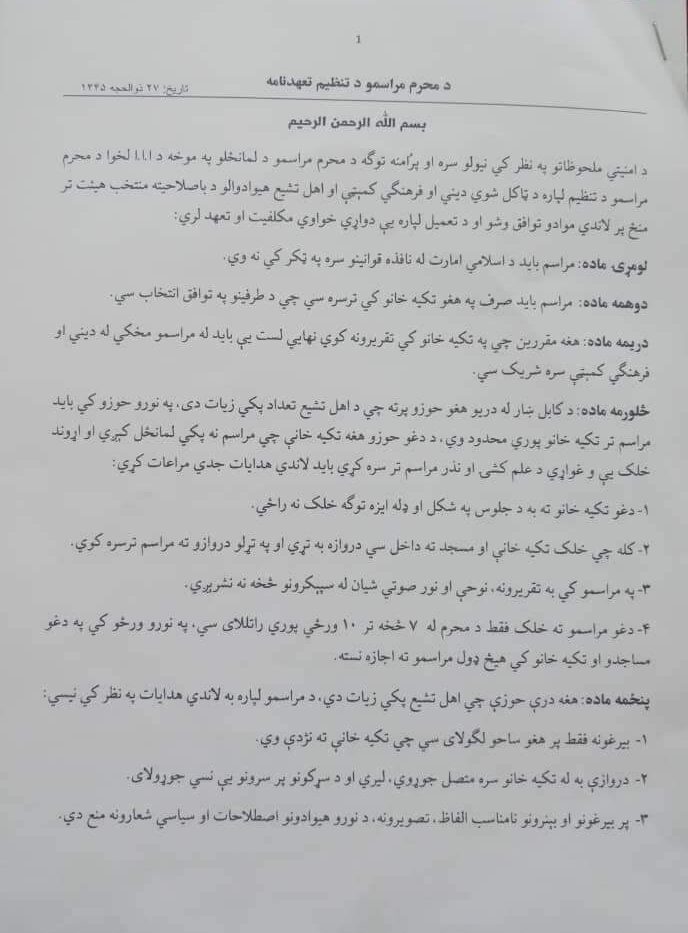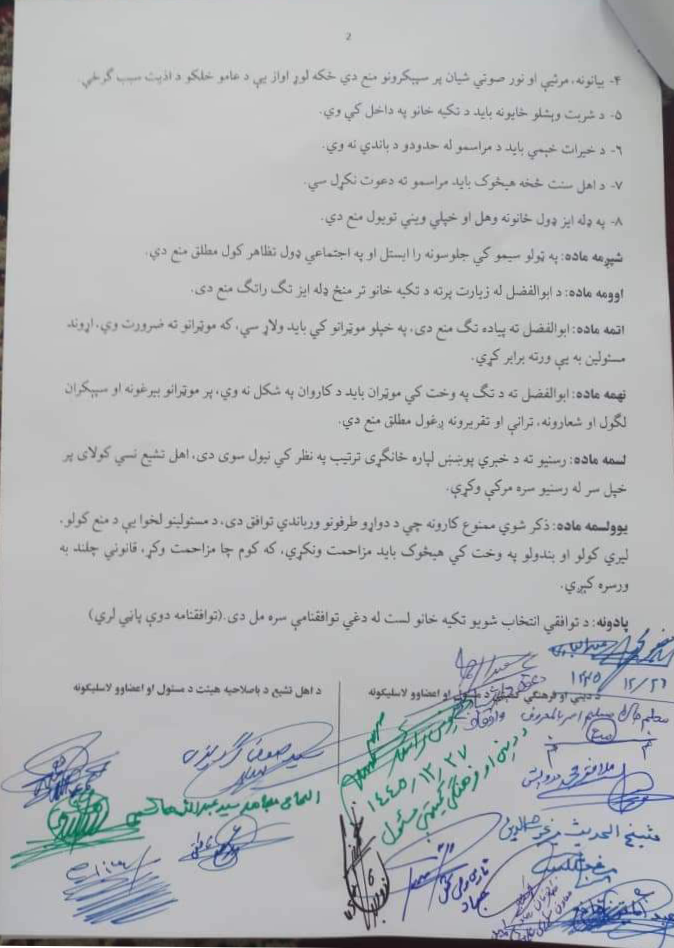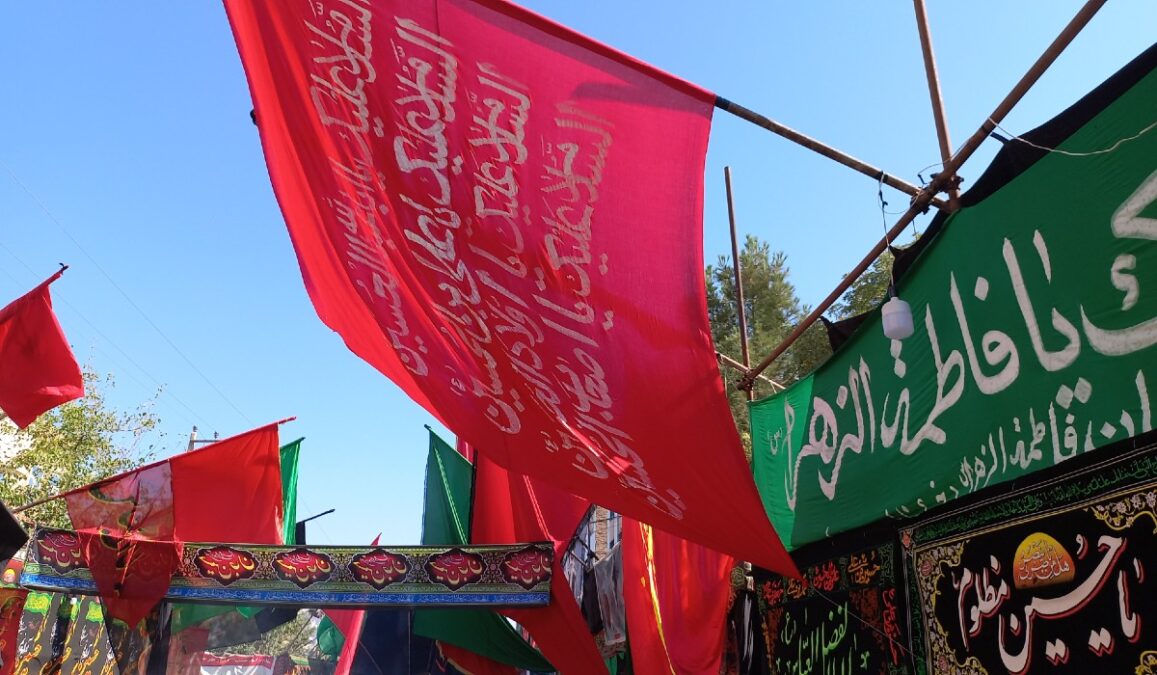A document obtained by Amu shows that the Taliban has imposed unprecedented restrictions on the 10 days of Muharram rituals, limiting it to only three days of mourning, including the Ashura day.
According to the document, Taliban has secured a commitment from several Shia scholars to accept these restrictions on Muharram ceremonies.
The document, confirmed as authentic by two Shia scholars, states that Shias in Afghanistan do not have the right to invite Sunnis to the mourning ceremonies.
Taliban has limited the Muharram mourning ceremony to only three days between the 7th and 10th of Muharram, and has asked that these ceremonies must be held behind closed doors.
Additionally, Taliban has restricted the mass or group presence of Shias in mourning ceremonies and participation in media programs.
Four days have passed since the beginning of Muharram, the first 10 days of which constitute the biggest Shiite mourning ceremony in the world.
Several Shiite citizens have expressed concerns about the Taliban’s restrictions on how to hold these ceremonies.
The text of the document was written by the Taliban and states that the Taliban and Afghan Shia elders have agreed on these principles.
The document stipulates that mourning ceremonies must adhere to the rules and principles established by the Taliban, and must be held only in designated mosques approved by the Taliban. The list of speakers must also be approved by the Taliban.

The first article of the document states that the ceremony must comply with the effective law of the Taliban.
The second article states that mourning ceremonies should be held only in mosques or places specified by both the Taliban and Shiite scholars.
The third article requires that the names of those who sing poetry at the ceremonies be shared with the cultural committee.
According to the document, Taliban has agreed with the Shia scholars that, except for the three districts of Kabul city where most residents are Shiites, people will mourn behind closed doors in other districts. In predominantly Sunni parts of Kabul, Shias do not have the right to go to Shia mosques.
Taliban has ordered that Shiites can attend Shia mosques only from the 7th to the 10th of Muharram and are not allowed to hold ceremonies on other days.
The fourth article stipulates that in areas with small Shiite populations, mourning ceremonies should only be held in Shia mosques, and flag-raising ceremonies should be conducted under specific conditions:
- Mourners should not arrive in groups.
- Mourners should close the doors after entering and hold the ceremony behind closed doors.
- Recitations, lamentations, and other audio items should not be played during the ceremony.
- Ceremonies can only be held from the 7th to the 10th of Muharram; no other ceremonies are allowed on other days.
Taliban did not specify which three areas of Kabul are predominantly Shiite but imposed additional restrictions on residents of these areas.
Based on the document, Taliban has said flags should only be installed in Shia mosques, no poetry should be played over loudspeakers, and charity should be distributed only within mosques. Shia citizens do not have the right to speak to the media.
Shiites are also not allowed to invite Sunnis to mourning ceremonies, the document shows.

The fifth article specifies that in a predominantly Shiite district of Kabul, the ceremony can be held under the following conditions:
- Flags should only be installed near mosques.
- Gates for the entrance to the mourning ceremony should be close to the houses, not on the streets.
- It is forbidden to write political slogans, inappropriate words, images, or terms of other countries on flags and posters.
- Broadcasting statements, laments, or other audio items over loudspeakers is prohibited as it may disturb other citizens.
- The place where syrups are distributed should be inside shelters.
- Donations should be distributed inside the ceremony venue.
- Sunni citizens should not be invited to the ceremony.
- Latmiyat (a Muharram ritual involving chest thumping) is prohibited.
The 10th article states that arrangements have been made for media coverage, and Shiites cannot speak to the media without permission.
These restrictions have sparked reactions from the country’s citizens.
Two Shia scholars familiar with the details of the document told Amu that it was prepared as a result of the Taliban’s dialogue with the Shia Religious Affairs Regulatory Council. However, Taliban spokesman Zabihullah Mujahid did not respond to Amu’s request for comment.
A Shia scholar confirmed to Amu that the Taliban prevented mourning ceremonies at Haider Karrar, Sheikh Aliha, and Waliasr mosques in Kabul. The Taliban’s rapid response unit also arrested the caretaker of Sheikh Aliha mosque.
Taliban has not commented on these incidents. However, reports from the United Nations and Human Rights Watch have highlighted systematic discrimination by the Taliban against religious minorities, especially Shiites.
Taliban did not respond to Amu TV’s call for comment on the document.





